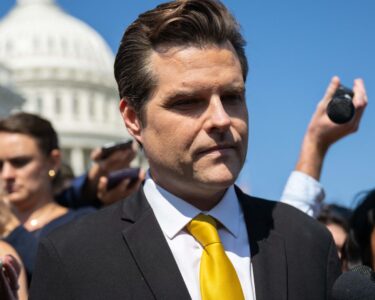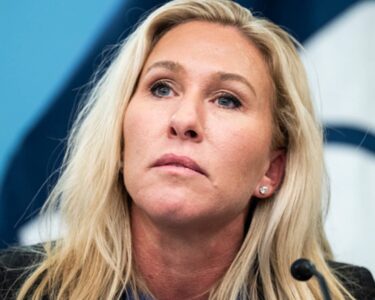WASHINGTON — Top Democratic lawmakers pressed the Justice Department and the Securities and Exchange Commission to open a probe into whether officials involved in the failure of Silicon Valley Bank, the largest bank collapse since the 2008 financial crisis, violated civil or criminal law.
The letter, sent Tuesday by Sens. Elizabeth Warren, D-Mass., and Richard Blumenthal, D-Conn., asks for a comprehensive investigation into the Federal Deposit Insurance Corp.’s takeover of the failing bank, along with “whether senior bank executives and other key officials involved in the collapse met their statutory and regulatory responsibilities or violated civil or criminal law.”
“This was a ‘colossal failure in asset liability risk management,'” the lawmakers wrote to SEC Chairman Gary Gensler and Attorney General Merrick Garland. “However, a series of reports revealed that key SVB officials showed a pattern of risky and questionable decision making that may have contributed to the bank’s instability and collapse and the ripple effects being felt throughout the economy.”
The failure of SVB, which was the nation’s 16th-largest bank, was preempted after it failed to adequately hedge against rising interest rates. The company’s tipping point came last Wednesday, when SVB announced it had sold $21 billion worth of its securities at a roughly $1.8 billion loss and said it needed to raise $2.25 billion to meet clients’ withdrawal needs and fund new lending. That news sent its stock price plunging and triggered a panic-induced wave of withdrawals from VCs and other depositors. Within a day, SVB stock had tanked 60% and led to a loss of more than $80 billion in bank shares globally.
California bank regulators shuttered SVB on Friday and the FDIC set up an intermediary bank to take over the bank’s insured deposits. By Sunday, New York state bank regulators and the FDIC did the same to Signature Bank, which was a major source of lending for the cryptocurrency industry.
The letter came on the heels of a joint announcement by the Justice Department and the SEC about the pending investigation into the SVB failure. The inquiry will take place in separate and preliminary phases and look into stock sales that SVB executives conducted ahead of the bank’s collapse.
“One of the enduring failures in the aftermath of the 2008 financial crisis was the inability or unwillingness of DOJ and bank regulators to hold bank executives accountable for behavior that destroyed millions of lives and cost trillions of dollars of wealth,” Warren, a member of the Senate Banking Committee, and Blumenthal, who chairs the Permanent Subcommittee on Investigations for the Senate Judiciary Committee, wrote. “The nation’s bank regulators cannot make the same mistake twice.”
Read more of CNBC’s politics coverage:
Warren and Blumenthal asked the agencies to look into into whether SVB executives violated any self-dealing rules, disclosure requirements, fiduciary duties or insider trading rules before the collapse.
SEC Chairman Gary Gensler, referencing the “events of last week” without mentioning specific companies or executives, reiterated at the top of an agency meeting Wednesday that his staff was focused squarely on finding and prosecuting any “misconduct that might threaten investors, capital formation, or the markets more broadly.”
The lawmakers accused SVB executives of giving preferential treatment to the bank’s founders, including low-interest mortgage loans and oversized pay and bonuses. Bank officials also lobbied Congress for exemptions to federal oversight regulations.
SVB employees reportedly received annual bonuses on Friday — hours before the bank was seized by the FDIC. Warren also wrote in a separate letter Tuesday asking Federal Reserve Chair Jerome Powell to recuse himself from a probe into SVB’s business practices that former bank CEO Gregory Becker convinced lawmakers to absolve the bank from certain protections under the Dodd-Frank Act.
“I am not prejudging this matter, and am not in position to do so,” the lawmakers wrote to Gensler and Garland. “But your agencies have extensive investigative authority and should use it appropriately.”
— CNBC’s Natasha Turak contributed to this article.






